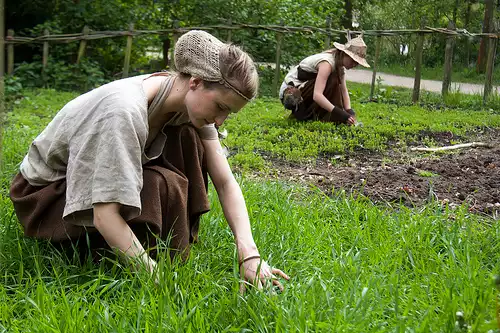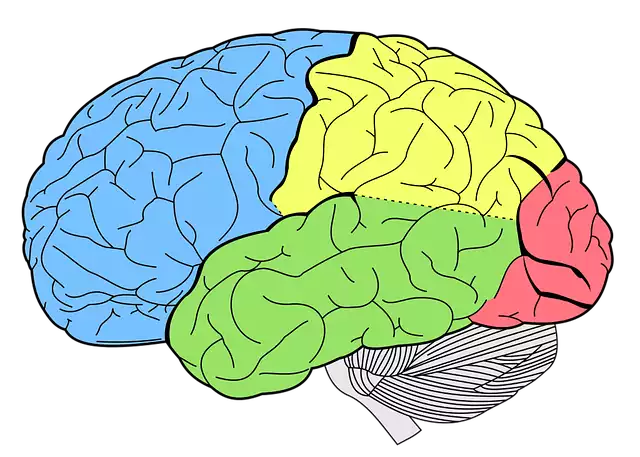Gardening Improves Mental Health
Imagine an oasis of calm in your own backyard, where the simple act of tending to blooming flowers and nurturing vibrant vegetables can transform not just your outdoor space, but also your state of mind.
In today’s fast-paced world, where stress and anxiety are constants, finding solace through gardening offers an organic solution to mental well-being.
Research increasingly supports what many avid gardeners have long known: Gardening improves mental health.
As our society grapples with rising rates of mental health issues, from depression to chronic stress disorders, could the answer lie in reconnecting with nature? This article delves into how the therapeutic benefits of gardening extend beyond mere aesthetics or hobbyist fulfillment.
By fostering a deeper connection with the earth, engaging in physical activity, and experiencing the joy of growth and renewal, individuals can significantly enhance their emotional resilience and overall mental health.
Join us as we explore the profound impact that this age-old practice has on modern minds.
Gardening has long been known to be a therapeutic activity, offering a sense of peace and serenity to those who partake in it.
However, recent studies have shown that gardening not only has physical benefits, but also has a positive impact on our mental well-being.
In today’s fast-paced world, where stress and anxiety are prevalent, the simple act of tending to a garden can have a profound effect on our mental health.
From reducing symptoms of depression to promoting mindfulness, gardening has been proven to be a powerful tool for improving our overall mental well-being.
In this article, we will delve into the various ways in which gardening can positively impact our mental health, and why it is important to incorporate this hobby into our daily lives.
Whether you have a green thumb or are new to gardening, the benefits are evident and can be experienced by anyone.
So let’s explore how gardening can be a therapeutic and rejuvenating activity for our minds, and why it is essential for our overall wellness.
Table of Contents Gardening Improves Mental Health
Gardening: A therapeutic stress reliever
Engaging in gardening activities has been widely recognized as a therapeutic and stress-relieving practice.
The connection between gardening and improved mental health has been well-documented by researchers and healthcare professionals.
The process of cultivating plants and tending to a garden has a calming effect on the mind, allowing individuals to escape from the pressures of daily life and find solace in the natural world.
The physical act of digging, planting, and nurturing plants can provide a sense of accomplishment and fulfillment, boosting self-esteem and overall well-being.
Additionally, being surrounded by greenery and natural beauty can have a soothing effect on the senses, promoting relaxation and reducing anxiety levels.
Gardening offers a holistic approach to improving mental health, providing an outlet for creativity, fostering a sense of purpose, and creating a peaceful sanctuary for individuals to find tranquility and rejuvenation.
Cultivate a positive mental attitude
Developing a positive mental attitude is a fundamental aspect of maintaining good mental health.
It involves cultivating a mindset that focuses on optimism, resilience, and a belief in one’s ability to overcome challenges.
In the context of gardening, cultivating a positive mental attitude can be facilitated by embracing the inherent uncertainties and challenges that come with tending to a garden.
By viewing setbacks as opportunities for growth and learning, individuals can develop a mindset that is adaptable and resilient.
Additionally, practicing gratitude for the beauty and abundance that nature provides can foster a sense of positivity and contentment.
Nurturing a garden also requires patience and commitment, which can help individuals develop discipline and perseverance, further contributing to a positive mental attitude.
By incorporating mindfulness and reflection into the gardening process, individuals can cultivate a deeper connection with themselves and the natural world, promoting a sense of inner peace and positivity.
Connect with nature, cultivate happiness
Spending time immersed in nature has been proven to have a profound impact on our overall well-being and happiness.
By connecting with nature through activities like gardening, we can cultivate a sense of tranquility, purpose, and inner peace.
The act of tending to plants and being present in the natural environment allows us to disconnect from the fast-paced, technology-driven world and find solace in the simplicity and beauty of the natural world.
This connection with nature not only nourishes our physical senses but also nurtures our emotional and spiritual well-being.
It provides an opportunity to slow down, observe the cycles of growth and change, and appreciate the miracles of life unfolding before our eyes.
Cultivating a garden not only helps to improve our mental health but also serves as a reminder of the interconnectedness of all living beings and our responsibility to care for the Earth.
In a world filled with stress and distractions, embracing nature and gardening as a means to cultivate happiness can bring a sense of fulfillment and harmony to our lives.
Soil your hands, heal your mind
Gardening offers a unique opportunity to engage in a physical and sensory experience that can have a profound impact on our mental well-being.
Through the act of getting our hands in the soil, we connect with the earth and tap into a primal part of ourselves.
As we dig, plant, and nurture our garden, we experience a sense of accomplishment and purpose.
The rhythmic movements and repetitive tasks of gardening can be meditative, allowing our minds to quiet and find respite from the stresses of daily life.
The tactile sensations of touching the soil, feeling the texture of leaves, and smelling the scents of flowers awaken our senses and ground us in the present moment.
This mindful engagement with nature not only helps to reduce anxiety and promote relaxation but also stimulates the release of endorphins, known as the “feel-good” hormones, contributing to an overall sense of happiness and well-being.
So, as you embrace the practice of gardening, remember that as you soil your hands, you are nurturing not just your plants but also healing your mind.
Grow plants, grow inner peace
Engaging in the activity of cultivating plants not only allows us to witness their growth but also fosters a sense of inner tranquility and peace.
As we tend to our gardens, we become attuned to the natural rhythms of life, witnessing the cycles of birth, growth, and renewal.
This connection to the life force of plants and nature can have a profound impact on our own well-being.
The act of nurturing and caring for plants teaches us patience, resilience, and the importance of taking time to pause and appreciate the beauty around us.
It provides us with a sense of purpose and accomplishment as we witness the fruits of our labor.
The act of gardening becomes a sanctuary, a place where we can retreat from the demands of the outside world and find solace in the simple acts of planting, watering, and tending to our green companions.
In this way, growing plants becomes not only a hobby but a path to inner peace and serenity, allowing us to cultivate both our gardens and our souls.
Mindfulness through gardening: Find serenity
Amidst the vibrant colors and soothing scents of a garden, an opportunity for mindfulness awaits.
Engaging in the act of gardening allows us to fully immerse ourselves in the present moment, experiencing the sensory delights that nature has to offer.
As we carefully plant seeds, delicately prune branches, and gently water our plants, we can cultivate a sense of serenity within ourselves.
The rhythmic motions of gardening can calm our minds and bring a sense of focus, directing our attention away from the stresses of daily life.
As we observe the intricate details of each flower or leaf, we become aware of the interconnectedness of all living things, fostering a deeper appreciation for the natural world.
In this way, gardening becomes a pathway to mindfulness, offering us a tranquil refuge where we can find solace and rejuvenate our spirits.
Nurturing plants, nurturing well-being
Gardening is not just about tending to plants; it is a practice that nurtures our own well-being.
In the process of nurturing plants, we also nurture ourselves.
The act of caring for and cultivating a garden provides us with a sense of purpose and fulfillment.
It allows us to engage in meaningful physical activity, promoting a healthier lifestyle.
The responsibility of tending to plants requires us to be attentive and patient, teaching us important virtues such as perseverance and resilience.
Additionally, the connection we forge with nature through gardening can help alleviate stress and anxiety, providing a therapeutic escape from the demands of modern life.
By immersing ourselves in the natural world and actively participating in its growth, we uncover a profound sense of satisfaction and contentment.
Gardening truly embodies the art of nurturing, both for the plants we cultivate and for our own well-being.
Plant, tend, and find tranquility
Engaging in the process of planting, tending, and finding tranquility in a garden can have profound effects on our mental health.
As we immerse ourselves in the rhythmic motions of planting seeds, carefully tending to the soil, and observing the growth and transformation of our plants, a sense of calm and serenity washes over us.
The act of gardening allows us to momentarily escape the stresses of everyday life and connect with the present moment.
The soothing sounds of nature, the earthy scents, and the gentle touch of soil beneath our hands create a sensory experience that grounds us in the here and now.
In this tranquil environment, we can let go of worries and anxieties, finding solace in the simplicity of nature’s cycles and the beauty of our growing garden.
It is within the embrace of our gardens that we find a sanctuary for our minds, a place of peace and rejuvenation.
In conclusion, the evidence is clear that gardening can have a significant positive impact on mental health.
From reducing symptoms of anxiety and depression to promoting mindfulness and self-esteem, gardening offers numerous benefits for our emotional well-being.
As healthcare professionals, it is important for us to recognize and promote the therapeutic power of gardening for our patients and clients.
So next time you feel overwhelmed or stressed, consider spending some time in your garden – not only will your plants thank you, but your mental health will too.
FAQ
How does spending time in a garden or outdoor space positively impact mental health?
Spending time in a garden or outdoor space can positively impact mental health by reducing stress, anxiety, and depression.
The fresh air, sunlight, and connection with nature can improve mood, increase relaxation, and boost overall well-being.
Engaging in gardening activities or simply being surrounded by greenery can promote mindfulness, provide a sense of accomplishment, and offer a peaceful escape from daily pressures.
This connection to the natural world has been shown to enhance mental clarity, creativity, and emotional resilience, making outdoor spaces valuable for improving mental health and overall quality of life.
What specific aspects of gardening, such as physical activity or connecting with nature, contribute to improved mental well-being?
Engaging in gardening offers a variety of mental health benefits.
Physical activity involved in tasks like digging and planting can reduce stress and improve mood through the release of endorphins.
Connecting with nature promotes relaxation, mindfulness, and a sense of calm.
The process of nurturing plants fosters a sense of purpose and accomplishment, boosting self-esteem.
Additionally, exposure to sunlight can increase vitamin D levels, which is linked to better mental well-being.
Overall, gardening provides a holistic approach to improving mental health by combining physical activity, nature connection, and emotional fulfillment.
Are there certain types of plants or flowers that are known to have a calming or mood-boosting effect on individuals?
Yes, certain plants and flowers like lavender, jasmine, rosemary, and chamomile are known for their calming and mood-boosting effects due to their soothing scents and stress-relieving properties.
These plants have been used in aromatherapy and herbal remedies to promote relaxation and enhance mood.
How can individuals with limited outdoor space or mobility still experience the mental health benefits of gardening?
Individuals with limited outdoor space or mobility can still experience the mental health benefits of gardening by creating a small indoor garden using pots or containers, utilizing vertical gardening techniques, or participating in community or shared gardens.
Additionally, virtual gardening programs, indoor plant care, or engaging in activities such as arranging flowers or creating terrariums can also provide similar therapeutic benefits.
Overall, finding creative ways to incorporate gardening activities into their daily routine can help individuals with limited outdoor space or mobility reap the mental health benefits associated with gardening.
What are some recommended gardening activities or practices for individuals looking to improve their mental health?
Engaging in gardening activities like planting flowers, vegetables, or herbs, practicing mindfulness while tending to plants, creating a peaceful outdoor space, and spending time in nature can all positively impact mental health.
Regularly caring for plants can provide a sense of achievement, reduce stress, improve mood, and increase overall well-being.
Additionally, joining community gardening groups or seeking professional horticultural therapy can enhance the therapeutic benefits of gardening for mental health improvement.







